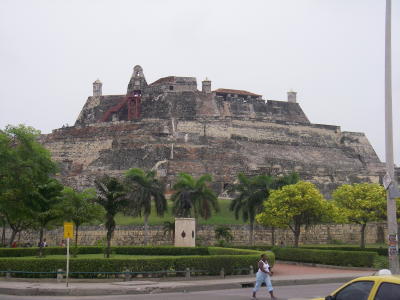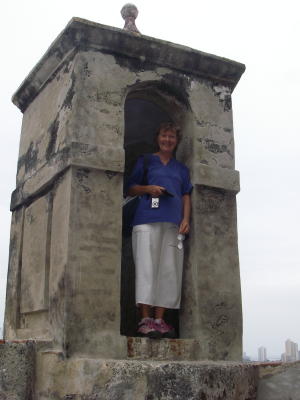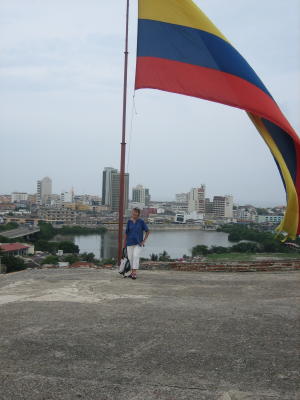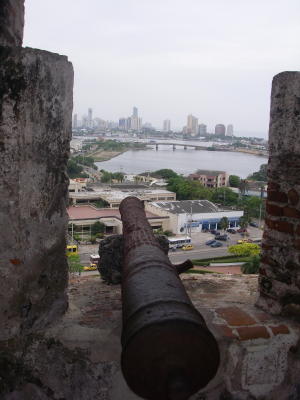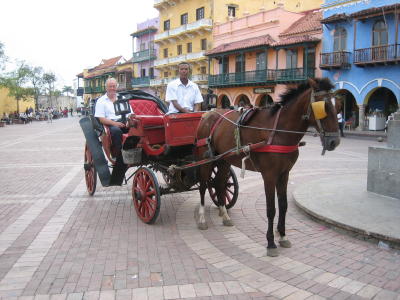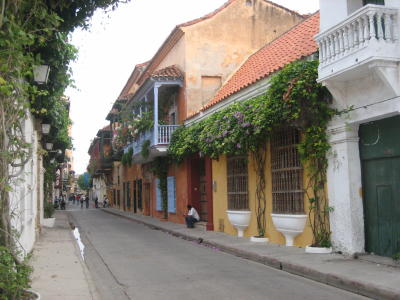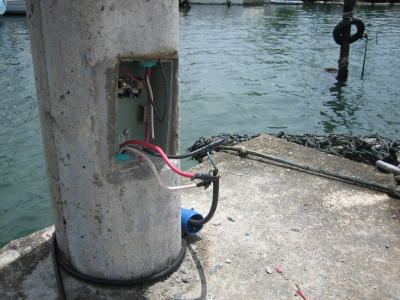Colombia and Panama

|
Apologies for the delay in completing this blog; we have
been busy! There is a feeling that we have really
arrived in foreign parts.
Initially, the prospect of
The Club Nautico, off which we anchored, is really a low key marina run by John, a laid back, efficient and friendly Englishman. He knows all his customers by name, even those anchored off, attends to detail and provides what the patrons want. Unsurprisingly some stay for months. 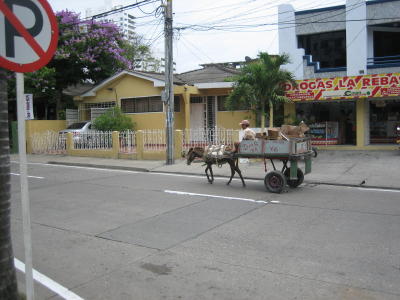 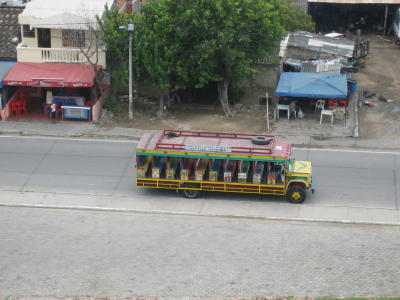 Perhaps one reason for staying for
months is that it takes most of that time to clear in and out. All the
officials are very relaxed and welcoming to their country but the Port Captain
will not deal directly with masters, only with a professional agent who has to
complete seven sets of forms, with multiple copies made with carbon paper.
Younger blog-readers may not remember carbon paper salesmen, the scourge of City
secretaries. Many a tearful girl
had to go to her boss to explain that somehow, without really knowing how it had
happened, she had contracted to buy ten years’ supply of carbon paper for
delivery tomorrow. So much of the
stuff is used in this part of the world that I am sure there are Colombian
carbon paper barons to rival the worst of another sort. It needs skilful handling too. Some forms have to be completed on both
sides so the carbons must be extracted from the sheets in quintuplicate, turned
over and re-inserted (doing this on a windy terrace is tricky). The forms being in Spanish we did not
understand everything that was being enquired into; probably a good thing - in
Trinidad I had become rather exasperated at having to declare, among
numerous highly relevant questions, how many tons of bauxite we were
carrying. The Port Captain's
representative and the immigration officer had to come out to the marina to
inspect us, but not the boat. Because we stayed for only five days we
enjoyed the benefits of expedited procedures. Nevertheless, everybody is
extremely friendly! Unlike
Anyway, our man Manfred, a retired German master mariner, did a great job and all went smoothly. We made some more new friends and were sorry to leave. 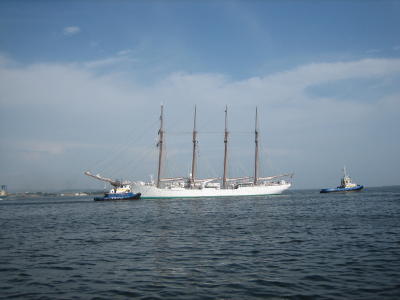
On arrival one gets passports stamped by
the dockside immigration officer.
That is easy. Later, armed with photos and copies of the stamped
passports one attends the Immigration Office in town and provides signatures and
thumb prints. One also provides
money for fees and, er, supplementary payments so that the staff will deal with
us before lunch (it is Boats going west start late afternoon,
anchor for the night in Gatun lake and reach the Pacific the following day. In addition to 3 Panamanian line
handlers, supplied by our agent with the ropes and fenders, we shall have an
Adviser. He is a trainee pilot
working his time on small boats. He
goes home when we anchor but the handlers stay on board. They will all be dedicated, experienced,
clean living non smokers.
Good. We have a
provisional date fixed for Thursday 24th but as usual we have a
little mechanical problem. The
mechanic was due yesterday from We have done one big “shop” but we shall
have to go again because this is the last convenient provisioning place before
One redeeming feature of the place is the marina restaurant, very low key, more of a “caff” really which dishes up excellent meals for from £5 to £6. It is the first time that we can truly say that there is little point in cooking and washing up on board.
........................................................................................................... Well, with assistance from a fellow yachtsman we think we have fixed our mechanical problem, a leak in the fresh water cooling circuit, and appear to be in better shape than the Aussies who waylaid our mechanic. Their engine is completely caput and they need a new engine with complete new stern gear. Apparently the owner, who has no sailing experience and is accompanied by two professionals, bought the boat sight unseen on the internet. We understand it was offered at a very competitive price. The new engine and gear may take three months to arrive. We have been catching up on maintenance,
laundry and victualling; ordering spares from the States and tracking them
anxiously. Friends lost a credit
card on the The word is that there is a shortage of canal Advisers, so boats are being put back. We are being patient.
NB Remember to let the cursor hover over the pictures to read the captions. |
